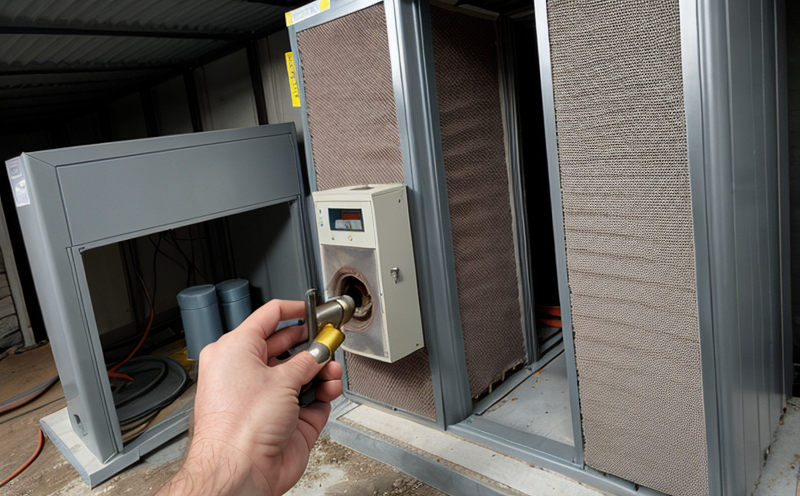ASTM F2703 Thermal protective performance of flame resistant textiles
The ASTM F2703 test method is designed to evaluate the thermal protective performance (TPP) of flame-resistant fabrics used in personal protective equipment (PPE). This standard provides a standardized approach for measuring how effectively these materials protect against flash fire exposure. By assessing both the heat resistance and durability characteristics, it ensures that workers are adequately safeguarded when exposed to high-temperature environments.
The ASTM F2703 TPP test involves exposing a pre-defined area of fabric sample to a controlled flash flame for 10 seconds. The duration this sample remains above 54°C after exposure is measured as the thermal protective performance value, which reflects the ability of the material to prevent heat transfer from reaching the skin. This metric is crucial because it directly impacts worker safety in fire-prone industries such as oil and gas or chemical manufacturing.
The test procedure also includes evaluating post-flash flame properties like char depth and residual thickness. These additional parameters help assess not just the initial thermal barrier provided but also the material's resistance to further damage after exposure, ensuring long-term protection during prolonged incidents of fire.
Given its importance in occupational safety, compliance with ASTM F2703 is mandatory for manufacturers producing flame-resistant clothing intended for high-risk environments. Non-compliance can lead to severe burns among workers and potential legal consequences for employers. Therefore, rigorous testing according to this standard helps maintain industry standards and enhances overall worker safety.
In practice, laboratories equipped with advanced thermal analysis equipment ensure accurate measurements by closely following the specified procedures outlined in ASTM F2703. Specimens are prepared according to detailed guidelines provided within the document, including specifics on sample size, shape, and conditioning conditions prior to testing.
| Industry | Application |
|---|---|
| Oil & Gas | Flame-resistant coveralls for field workers |
| Chemical Manufacturing | Personal protective clothing for plant operators |
| Mining | Protective garments for miners working in shafts |
Why It Matters
The ASTM F2703 TPP test is critical because it ensures that flame-resistant textiles provide adequate protection against flash fires, which are sudden and intense bursts of heat. These incidents can occur in various industrial settings where sparks or open flames might ignite rapidly spreading flames. Without proper protective clothing, workers could suffer severe burns leading to lifelong disabilities or even fatalities.
By adhering to ASTM F2703 standards, manufacturers guarantee that their products meet stringent safety requirements set forth by regulatory bodies worldwide. This compliance not only protects individual employees but also contributes to the overall enhancement of workplace safety across industries. Moreover, consistent application of these tests helps establish trust among customers who value reliable and effective PPE solutions.
- Reduces risk of severe burns
- Enhances worker confidence in protective gear effectiveness
- Meets international safety regulations
Industry Applications
The ASTM F2703 TPP test is particularly relevant for industries where workers are exposed to potential fire hazards. Some key applications include:
- Oil and gas exploration and production sites, where accidental spills or equipment malfunctions could ignite fires.
- Chemical processing plants dealing with flammable materials that require strict safety protocols.
- Mining operations conducted deep underground, where rescue efforts may be complicated by environmental factors like smoke and heat.
Customer Impact and Satisfaction
Adhering to ASTM F2703 standards significantly improves customer satisfaction levels among those responsible for selecting PPE. Here’s how:
- Informed Decision-Making: Customers can rely on accurate TPP values when choosing flame-resistant textiles, knowing they meet international safety benchmarks.
- Enhanced Reputation: Companies demonstrating commitment to worker safety through rigorous testing gain respect and loyalty from their clients.





